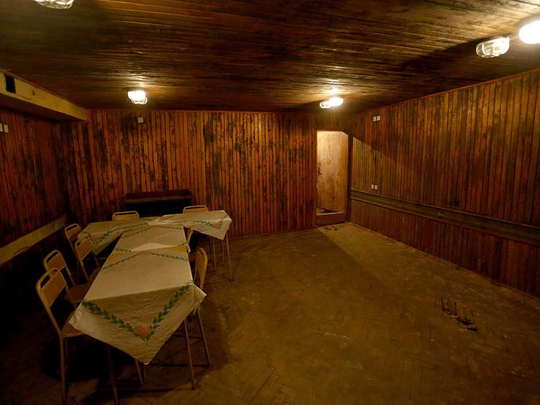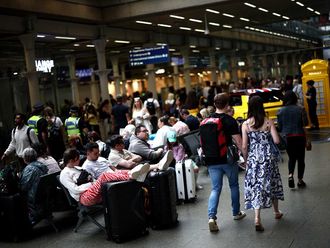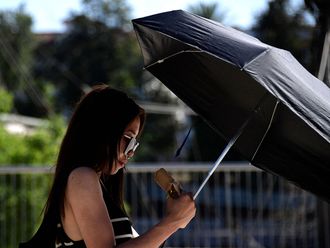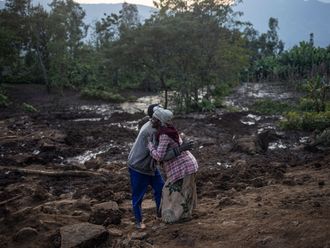
Tirana, Albania: Who doesn’t want to see a formerly top-secret Communist nuclear bunker?
A facility that was designed to keep Albania running after a nuclear attack is the latest relic of the country’s dark Communist past that is being reinvented as a modern tourist attraction.
In its swords-to-ploughshares drive, the Socialist government has already announced plans to open an island fortress to tourists and auction off the country’s decrepit Soviet and Chinese fighter jets.
The small Balkan nation has no end of useless military installations and weaponry, a legacy of the paranoid, isolationist regime that ruled it with an iron fist for about 50 years after the end of the Second World War.
Fearing invasion by a host of imaginary enemies — imperialists, social-imperialists (as other Communist countries deemed ideologically unsound were termed) or restless, land-hungry neighbours — Albania’s regime had about 700,000 concrete bunkers of all sizes built across the country.
A quarter-century after the Communists’ fall, most are still there, the bigger ones serving as sheep barns, bars, restaurants, public toilets, love nests for furtive couples or even as homes.
The queen of them all — a secret five-storey underground extravaganza on the outskirts of the capital Tirana to protect Albania’s army command from nuclear attack — opened to the public two years ago. It has since closed due to funding shortages. Authorities are planning to reopen it this summer.
Now, its smaller sibling in downtown Tirana is tapped to become a museum of the Communist era, sparking complaints from Albania’s conservative opposition party that the governing Socialists are trying to glorify the country’s dark past.
Located under the Interior Ministry, the secret nuclear bunker was built in the early 1980s to shelter ministry staff. Auron Tare, who heads a government tourism agency, says opening the former bunker as a museum will help preserve the country’s history.
“Twenty-five years after the fall of communism, the younger generations have no idea of what that regime was (like),” he told The Associated Press. “The collective memories of the communist regime, which had so much impact on the country’s life, are being wiped out fast.”
The 1,000-square-metre bunker has thick reinforced concrete walls to withstand nuclear attack. Machinery kept the air fresh from radioactive pollution, generators provided electricity, and water came from a well inside the structure. Its old East German-made air conditioning system is still functioning.
Staff offices doubled as dormitories and were equipped with iron tables and beds. The minister had a small, wood-panelled suite to himself, which included a small room for his secretary, a bedroom and bathroom, and a hotline to the party’s leadership.
Authorities hope to open it to the public later this year.
The structure has already triggered controversy. An antigovernment rally by the conservative Democratic Party late last year ended with a riot at the Interior Ministry, with protesters trying to destroy a small replica bunker that will provide access to the shelter.
Architect Artan Shkreli, who is involved in the bunker project, says the criticism is “absurd,” but was pleased that the new entrance weathered the attack.
“Hundreds of thousands of bunkers built by the communist regime were never tested,” he said. “That fake bunker ... passed the test!”










_resources1_16a30b3523c_small.jpg)

